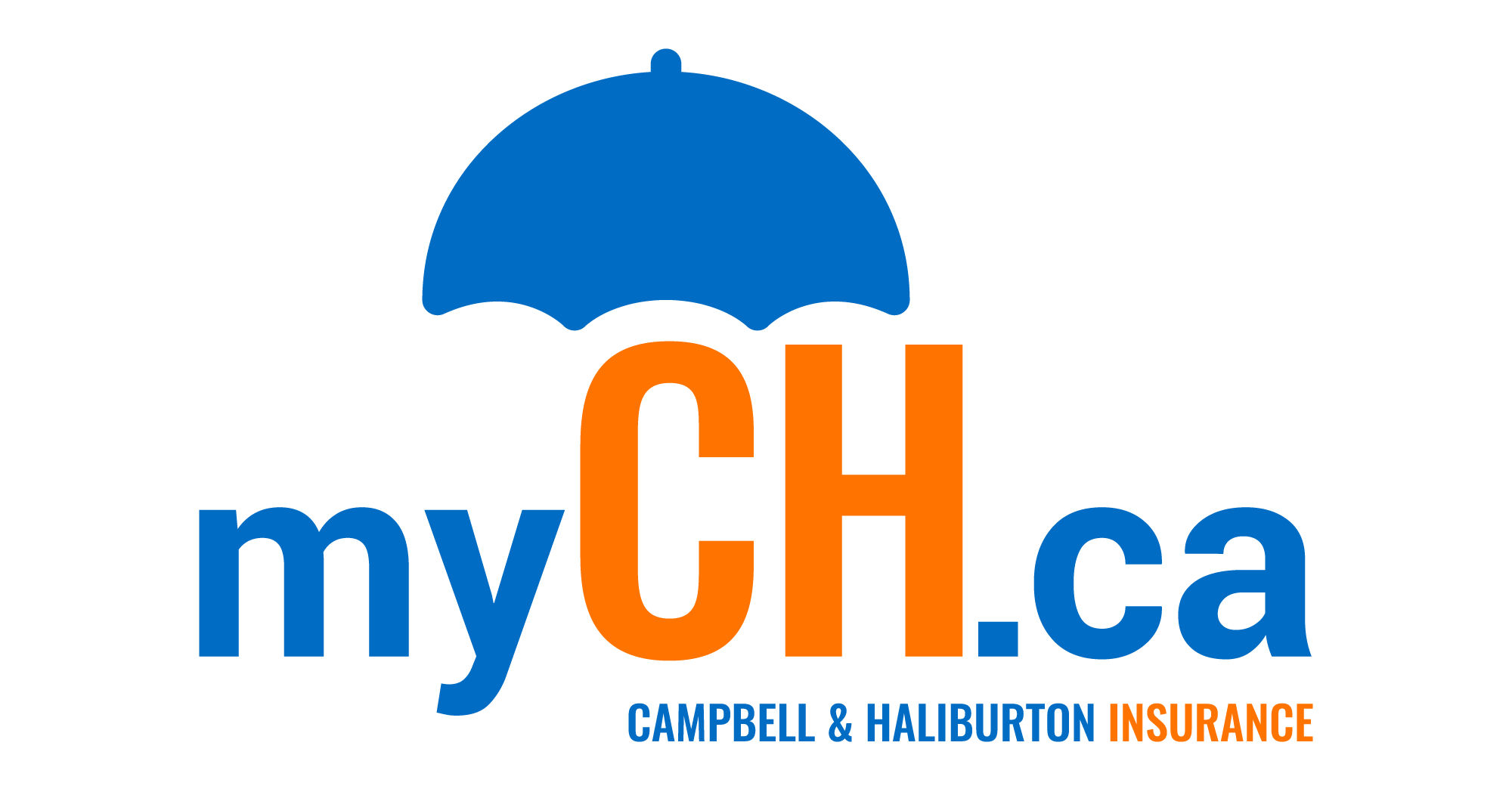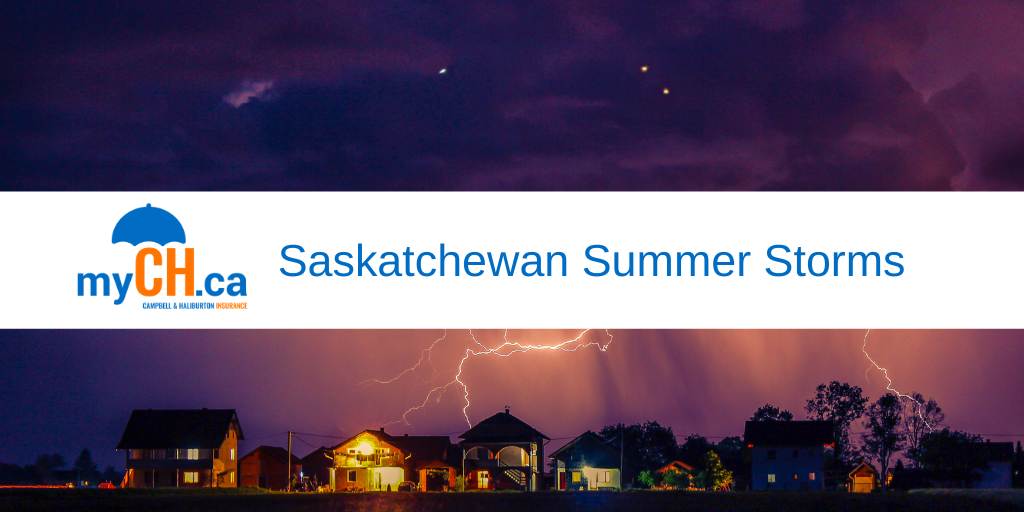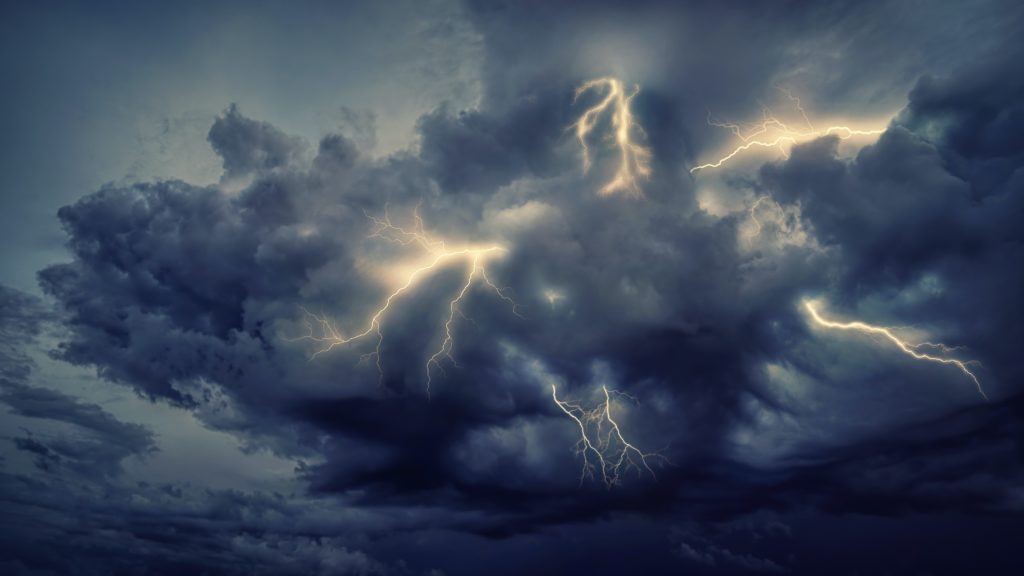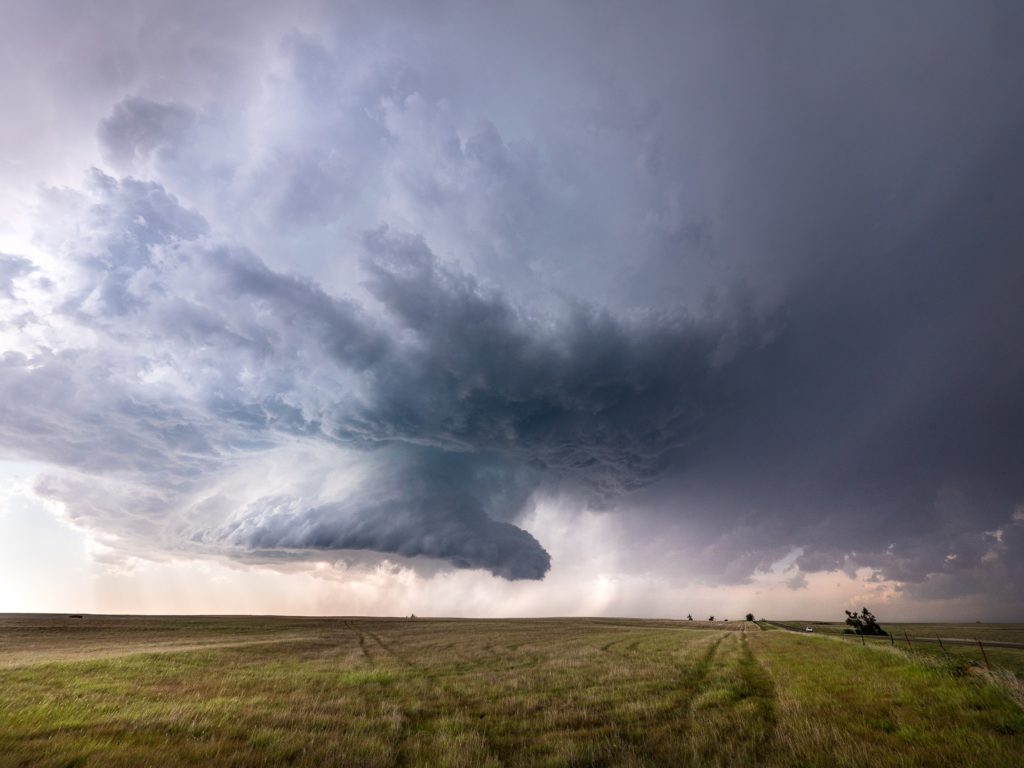Hi there! It’s Blaine, your Regina Home Insurance Expert at Campbell & Haliburton, myCH.ca. Today, I want to talk about Saskatchewan summer storms!
Saskatchewan Summer Storms
Thunder, lightning, rain, wind, hail… then five minutes later it’s a nice sunny day! We’ve all been there, it’s a major part of living in Saskatchewan. By the time you finish reading this sentence, we’re back to rain! Our storms in Saskatchewan are unlike any other province. Whenever friends from BC or the Maritimes come to visit, something they hope to see is a prairie lightning storm! However, what happens when damage occurs due to wind, rain, or lightning? Saskatchewan summers are typically very dry from June to September. We see storms where there is only lightning and thunder, with no rain. In this climate, it is very easy to suffer a loss caused by a storm. Therefore, it is important to know how your insurance covers you for these losses.
Lightning
Lightning is a powerful force of electricity. This can cause significant damage. Lightning causes trees to fall and fires to start. Should a surge affect your home, lightning may even cause the TV on your wall to burn out. While efforts should be taken to limit its effects on your home, damage caused by lightning is covered by insurance in nearly every situation. Lightning strikes your home and starts a fire? Covered. Lightning strikes your home and damages all the electronic items? Covered. However, lightning may not be covered if the damage causes your food to spoil due to loss of refrigeration. However, this coverage can often be added to your home insurance!
Wind
Summer storms in Saskatchewan bring the potential for devastating windstorm damages, often covered by insurance. Instances like shingles or siding being blown off are typically claimable, necessitating repairs. However, the type of damage and settlement can vary, contingent on the roof’s age. A five-year-old roof usually qualifies for full replacement cost coverage, ensuring comprehensive coverage regardless of replacement expenses—provided adequate insurance was in place before the damage occurred.
As roofs age, typically around the 20-year mark, depreciation may come into play. Shingles, despite having a stated lifespan on the box, often require replacement sooner due to weather conditions. For instance, 25 to 30-year shingles may need replacement every 15 to 20 years. Understanding these nuances is crucial for homeowners navigating insurance claims, ensuring they receive appropriate coverage based on their roof’s age and condition.
Hail
Hail and wind tend to be grouped together. This is because the damages they cause affect the same portions of the house, primarily the exterior. For example, a shingle blown off a 20-year roof will have depreciation applied. Similarly, a 20-year-old shingle that has holes punctured through it due to hail, will also have a depreciated settlement value.
Rain
Rainfall, the most potentially damaging loss type from a Saskatchewan storm, can infiltrate homes through even the smallest cracks or imperfections. Despite its prevalence in all storms, homeowners’ insurance generally does not cover rainfall as a loss type. Extensions to a policy may provide coverage for water entering your home from the outside, but it’s not a typical inclusion. Exceptions to this rule exist, contingent on the concept of proximate cause—the initial incident leading to the events causing the damage. For example, if a fire originates inside the home and burns a hole in the side, allowing water entry during a simultaneous rainstorm, the proximate cause is the fire, not water. Similarly, a windstorm that blows shingles off the roof, permitting rain entry, would attribute the proximate cause to the wind, not water. Understanding these nuances is crucial in navigating insurance coverage for potential damages.
Overland Water Endorsement
As mentioned previously, extensions can be purchased which allow coverage for water entering the home from the outside through the doors and windows. On the insurance policy, this is typically called an overland water endorsement. This will protect up to the amounts shown on your policy for water entering the home during a storm event. The overland water endorsement will also sparingly cover groundwater. This is provided that the water entered through the ground surrounding your foundation. However, the overland water endorsement does not include seepage. Therefore, groundwater entering the home through a crack in the basement wall would generally not be covered by insurance. Further, the pressures of groundwater on the foundation of a house causing cracks or foundation damage, would not be covered by insurance.
The overland water extension endorsement would typically cover river and creek overflow due to heavy rainfall. Dwellings located near a river or creek tend to be rated higher accordingly.
Tornadoes
The amount of times we hear the question “what about an act of God?” In this line of work, well, it’s a lot! The long and short of it is that there are no exclusions for “acts of God.” This is because the exclusions are based on the actual loss that occurred. During a Saskatchewan summer, there is sometimes the risk of a tornado. A tornado is a windstorm, and by that virtue is a covered loss. Again, provided your policy covers for wind.
Tornadoes tend to cause significant damages, similar to wind, but on a larger scale. Thus, the size and amount of damage caused by a tornado does not preclude it from being a covered loss.
Loss
When your property incurs damage, prompting a loss, the question arises: when do you file a claim on your insurance policy? The urgency to address and rectify the situation may lead to a sense of panic. You might find yourself contemplating how to navigate the repair process swiftly. In the aftermath of a Saskatchewan summer storm, homeowners often opt to address all damages simultaneously, placing substantial pressure on the construction industry to facilitate timely repairs. Therefore, to navigate this situation effectively, the recommended course of action is to contact your broker promptly.
Generally, when damage occurs, it is best to have a professional out as soon as possible. They can survey the damage and provide an estimate for the repairs.
Claim
You may have a discount on your insurance policy because you have not placed a claim in the last 5 years. It is important to note that in ac



